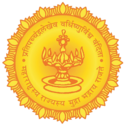Address at the inauguration of the BRICS Friendship Cities Conclave 2016
ddress by Shri CH Vidyasagar Rao, Governor of Maharashtra at the inauguration of the BRICS Friendship Cities Conclave 2016 organized by Mumbai First in association with Government of Maharashtra and Government of India at Regal Room, Hotel Trident, Nariman Point, Mumbai at 1700 hrs on Thursday, April 14, 2016
Shri Devendra Fadnavis, Hon’ble Chief Minister of Maharashtra, Shri M. Venkaiah Naidu, Hon’ble Minister of Urban Development, Government of India, Provincial Governors from various countries, Mayors, Smt Snehal Ambekar, Hon’ble Mayor of Mumbai, City Leaders, Shri Swadheen Kshatriya, Chief Secretary, Government of Maharashtra, Shri Sumit Mullick, Additional Chief Secretary, Government of Maharashtra, Shri Amar Sinha, Secretary, Ministry of External Affairs, Shri Ashok Kumar Dash, Chief Post Master General, Maharashtra Circle, Shri Narinder Nayar, Chairman, Mumbai First, Shri Hazeem Galal, Global Cities and Local Government Sector Leader, PwC, Shri Shishir Joshi, CEO, Mumbai First, distinguished delegates, invitees, ladies and gentlemen,
At the outset, I extend a warm welcome to the Governors, Mayors, city leaders, specialists and delegates who have travelled from Brazil, Russia, China and South Africa to participate in the first BRICS Friendship Cities Conclave.
I would like to compliment Mumbai First, the Government of Maharashtra and Government of India for organizing this Conclave in Mumbai.
India has taken over the Chairmanship of the BRICS Nations from Russia recently, and I am glad that we are hosting the first among the series of meetings on an important issue of promoting friendship among BRICS cities.
The presence of the Hon’ble Chief Minister of Maharashtra and Hon’ble Union Minister for Urban Development Shri Venkaiah Naidu is a reflection of the importance the Government – both, at the National level and the State level attaches to this Conclave.
As global urban cities grow in population, the strain on the national infrastructure continues to be tested. Cities will begin to feel the strain as more pressure is placed on basic infrastructure, particularly housing, transportation, water supply, management of solid waste and so on.
More than half of the global population of nearly 7 billion became urbanized last year and about, 60% of the population is living in cities. Most of the urban population growth is expected to take place in the BRICS Nations.
China, India and Brazil are three of the largest emerging economies and they have all experienced rapid urbanization along with growth. It is clear that the cities of the BRICS Nations will dominate the world’s economy by 2050 when the population of the world will touch the 9 billion mark. This Conclave organized with the purpose of sharing our respective experiences in building our cities and economies is therefore taking place at the most appropriate juncture.
The cities of the BRICS Nations have a lot of similarities in their problems and challenges. No single city has solutions to all the problems, but by sharing experiences, ideas and expertise, we can lay a strong foundation for urban planning in order to develop SMART cities.
Speaking for India, nearly 31 per cent of India’s current population lives in urban areas and contributes 63 per cent of India’s GDP. With increasing urbanization, urban areas are expected to house 40 per cent of India’s population and contribute 75 per cent of India’s GDP by 2030.
The Hon’ble Prime Minister of India Shri Narendra Modi stated that “urbanization should be viewed as an opportunity and urban centres should be viewed as growth engines”.
Under the guidance of the Hon’ble Prime Minister and under the able leadership of Hon’ble Minister for Urban Development Venkaiah Naidu Ji, the Government has launched the Smart Cities Mission in India under which 100 existing cities will be transformed into Smart Cities. I am proud to mention that 10 of the proposed 100 smart cities will be in Maharashtra.
Apart from 100 Smart cities, 500 other cities are to be developed under the Atal Mission for Rejuvenation and Urban Transformation (AMRUT) scheme.
Even though, there is no universally accepted definition of a Smart City, the core infrastructure elements in a Smart City would include adequate water supply, assured electric supply, sanitation including solid waste management, efficient public transport, affordable housing, especially for the poor, robust IT connectivity and digitalization, good governance, especially e-governance, clean environment, and so on.
One of the important features of these schemes is that citizens have been provided an opportunity to contribute in the formulation and development of their vision for their cities.
The issue of solid waste management has reached menacing proportions and we need to develop suitable technologies and institutional arrangements for waste management.
The Swachch Bharat Mission aimed at imbibing the culture of cleanliness among citizens has transformed into a mass movement in India. We are working to usher in a Clean India by 2019.
Ladies and gentlemen,
We need solutions from all of you in the areas of E-governance and Citizen services, Energy Management and use of Renewable Sources of energy and most importantly Skill Development, and I do hope that this meeting will be the beginning of an era of cooperation among BRICS cities.
As Governor, I happen to be Chancellor of 20 public universities having student enrollment of 3 million students. I would like to see student and faculty exchange between the universities in Maharashtra and those in the BRICS countries,
The Stamp Cover released today will serve as a memento and a reminder of our commitment to promoting friendship among BRICS cities.
I find from the papers sent to me that you will be discussing a range of issues so much important for the development of cities over the next two days. I do hope that the organizers will come up with a report based on the outcome of the Conclave. I am sure, you will also enjoy the colourful cultural programmes presented during the next two days.
Before I conclude, I would like to thank Mumbai First for organizing this important Conclave. I wish you fruitful deliberations and a memorable stay in Mumbai.
Thank you
Jai Hind ! Jai Maharashtra !!



